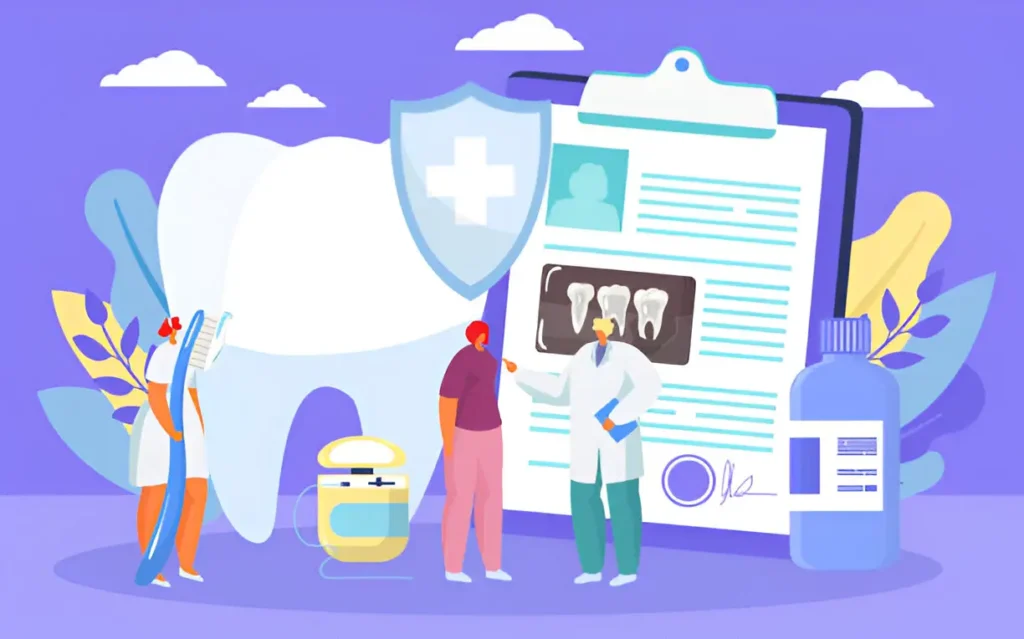The Current State of Veterans’ Dental Health
Access to quality dental care remains a significant issue for many veterans, with gaps in coverage contributing to increased oral health problems. Despite their service, only a small fraction of veterans qualify for comprehensive dental benefits through the Department of Veterans Affairs (VA). Out of approximately 9.2 million veterans enrolled in VA health care, just about 1.4 million are eligible for full dental care coverage. As a result, veterans are statistically 60% more likely to suffer from tooth decay and 42% more likely to experience gum disease compared to the general population, highlighting a substantial gap in care.
Recognizing these challenges, programs offering dental insurance for veterans are crucial for bridging this care gap. By providing access to preventative and restorative dental services, these programs support veterans in maintaining better oral health, which in turn positively impacts their overall well-being.
Oral health has a direct impact on overall health, particularly for populations at a higher risk of chronic conditions. Poor oral health can lead to systemic issues, making dental care an essential aspect of comprehensive health management for veterans.
Beyond the immediate impact on oral health, insufficient dental coverage often forces veterans to delay or forego necessary care due to cost or limited access, compounding overall health risks and creating additional challenges for those already managing complex medical needs.
Impact on Overall Health
The relationship between oral health and chronic diseases, such as heart disease, diabetes, and respiratory conditions, is well-documented. According to the World Health Organization, poor oral health can contribute to systemic conditions and significantly affect overall well-being. For example, veterans with untreated oral health problems are more likely to have increased healthcare costs due to aggravated chronic illnesses. Missing regular dental check-ups can significantly impact productivity and quality of life; among veterans with heart disease, those who did not receive dental care had annual costs from missed workdays that were four times higher than those who did attend dental visits.
Prevention and early intervention through regular dental visits help control inflammation and infection, which are major contributors to the worsening of chronic diseases. Ensuring veterans can access necessary dental care reduces long-term health costs, enhances daily functioning, and improves quality of life.
Barriers to Dental Care Access
Several obstacles make it challenging for veterans to secure reliable dental care:
- Eligibility Restrictions: Most VA dental benefits are limited to veterans with specific service-connected dental issues, leaving others without coverage for regular or preventive dental care.
- Geographic Challenges: Veterans residing in rural or remote areas frequently travel long distances to access a dental provider, rendering routine care inconvenient or inaccessible.
- Financial Constraints: For veterans without coverage, out-of-pocket dental costs can be prohibitively expensive, leading many to postpone treatment until issues become severe or urgent.
Innovative Solutions: Tele-Dentistry
The VA and allied organizations are turning to technology to help close the gap in dental care access. Tele-dentistry is emerging as a powerful tool, enabling dental specialists to remotely assess oral health issues, review images of lesions, and recommend treatment without requiring an in-person appointment. These efficiencies are particularly valuable for veterans living far from urban centers, allowing them to receive timely evaluations and referrals.
This innovative approach not only enhances convenience but also helps veterans maintain continuity of care, detect problems earlier, and promote better overall oral hygiene.
Policy Recommendations
The expansion of eligibility for veteran dental benefits is a pressing policy issue. Legislative initiatives, such as the Veterans Dental Care Eligibility Expansion and Enhancement Act, aim to provide comprehensive dental coverage to all veterans enrolled in VA healthcare, rather than restricting benefits to a select group. As highlighted in a recent announcement by Senator Bernie Sanders, such expansion would likely reduce overall healthcare expenses by preventing the escalation of oral health issues and their associated chronic diseases. By expanding access, policymakers can ensure that all veterans receive the care and respect they deserve following their service.
Community Support and Partnerships
Support from nonprofit organizations and dental industry leaders is also critical in closing gaps in veteran dental care. For example, the Dental Lifeline Network, in partnership with Delta Dental, has delivered $15.6 million in donated oral health care services over five years for medically fragile, elderly, or disabled veterans. This ongoing support exemplifies the community’s role in providing essential care where benefits and coverage may fall short.
Partnership-driven solutions can mobilize resources and expertise to reach at-risk populations quickly and efficiently.
Conclusion
Dental care is essential for the overall health and well-being of veterans. Addressing barriers through expanded coverage, innovative care models, supportive policy, and collaborative partnerships can significantly improve health outcomes and quality of life for those who have served. By continuing to prioritize dental health, we honor our nation’s commitment to its veterans and enable them to lead healthier, more fulfilling lives.
Also Read- Glizzy Meaning in 2025– What It Stands For, Text Usage & Polite Alternatives



